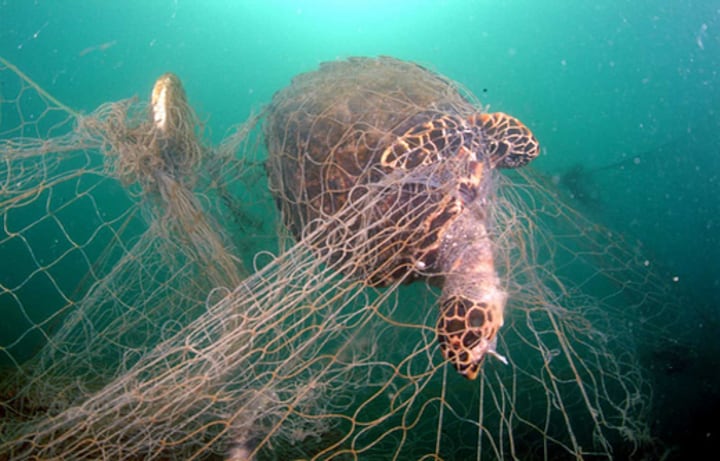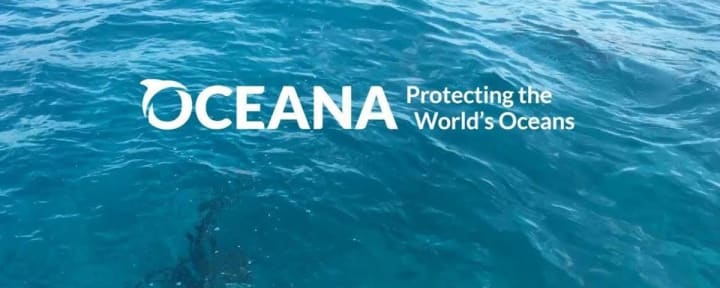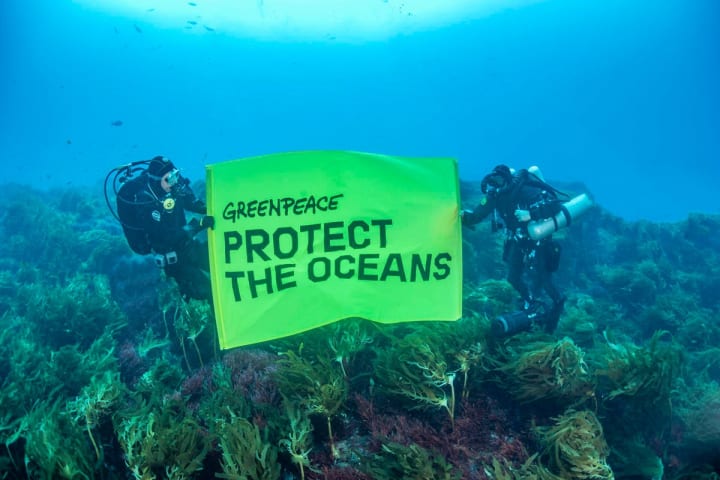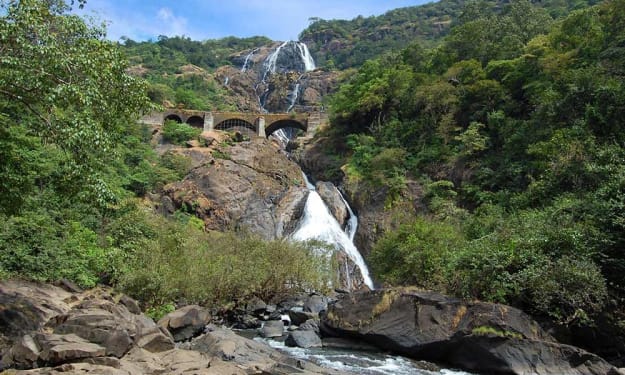13-Extraordinary ways to SAVE THE OCEAN !!
There are no SUPERHEROES TO SAVE THE WORLD, Let's be one and PROTECT IT !!

Oceans cover 71 percent of the planet and are home to important species and ecosystems on which we rely for food, livelihood, climate control, and more. But the oceans need our help. Saving the seas can sometimes sound like a lot of work, but when we all get in, we can make a big difference.
For many, seaweed is the # 1 source of protein we eat. People, plants, animals, and all other living things depend on a safe, clean sea. The oceans are the largest natural resource in the world, which is why it is so important that we take steps to combat the many threats and problems that the sea faces today.
There are currently many natural threats to the ocean such as sea acidification, plastic pollution, beach pollution, overfishing / destructive fishing, and much more. Each threat continues to grow with each passing day. I have always believed strongly in restoring the environment because of how much it gives us. It is extremely important to keep our oceans clean and safe from these threats.
1. LOOK FOR MORE PLATES
Oceans are facing a huge and growing threat from plastic. An estimated 17.6 million pounds of plastic leaks in the ocean floor from land sources each year - that's almost like throwing a garbage truck full of plastic into our ocean every minute. And the plastics don't move!
We need to urge companies to provide consumers with non-plastic alternatives and to say no to using recycled plastics such as straws, cutting plastic, coffee cups, water bottles, plastic bags, balloons, plastic wrap products, and food containers.
2. REDUCE YOUR CARBON FOOTPRINT

Carbon dioxide, a well-known greenhouse gas, makes our oceans acidic. This contributes to the loss of corals worldwide as their calcium ions are weakened by the rise of acid in the water.
You can reduce your carbon footprint by using some of these simple steps:
• Bike, walk or use public transportation instead of driving.
• Turn off lights when you leave the room.
• Wear a winter jersey instead of turning on your thermostat.
• Have fun with your food - buy seafood. It is a renewable source that requires less saltwater to produce and emit less carbon dioxide than earth proteins such as beef.
3. AVOID PRODUCTS THAT PLANT THE SEA

There are many products that are directly linked to harming endangered or endangered species, unsustainable fishing methods, and pollution. For example, avoid cosmetics containing shark squalene, coral jewelry or sea turtle shell, souvenir shells of conch, nautiluses, and other animals, and plastics that use the same material like grass and water bottles that can end up in our ocean. These products support unsustainable fishing and threaten important species and ecosystems.
4. EAT OVER THE SEA
Choose healthy seafood for you and the seafood from well-managed wild fishing grounds. We know it's hard to know which fish are ready to eat, which is why you can turn to these helpful resources:
• Print or download a guide from Seafood Watch to help you make informed decisions when buying or order seafood, and learn about seafood certification.
• Look for these top chefs to find recipes for sustainable seafood.
• Consider including low-fat, high-protein fish in your diet.
5. VOTE ON MARINE CONDITIONS
Selecting public officials who support good maritime policies can help us protect marine and marine life. Do your research for partners and make an informed decision, then exercise your right (and your responsibility) to vote. And don't let election day be the last time you hear it. Follow up with candidates and elected officials regularly to remind them of the policies you care about.
6. CONTACT YOUR REPRESENTATIVES AND LAWMAKERS
Your attorneys and lawmakers may not be aware of the seriousness of these issues facing our oceans. But they will do it if you tell them. It is up to citizens like you to inform the authorities about the problems facing marine life and our oceans. Do not be shy! Take action through Oceana to get in touch directly with your government representatives and attorneys.
7. CHECK OUT OF THE SEA
Get out and explore the oceans around you! If you do not live near the sea, visit your local lake or river to learn how your water area interacts with the sea. There are many online opportunities to explore the oceans, too. Visit the Marine Life Encyclopedia of Oceana to learn fascinating and fascinating facts about every kind of animal from sharks and seals to octopus and clownfish.
People protect what they love. ”- Jacques-Yves Cousteau
8. Do not leave anything out
As the sea level rises, so does the amount of garbage left behind or blown away. Don't let your day out contribute to the destruction of our seas. Remember to leave nothing behind your steps - to collect and dispose of your garbage.
9. GET YOUR SEA HEROES AND CHILDREN, FAMILY AND KINGS
Tell people what is happening at sea and what they can do to join you in making a difference. Spread the word about complaints, share interesting facts, and join the conversation with us on Facebook, Instagram, Twitter, and YouTube.
10. Join OCEANA

More than 800,000 members and activists in more than 200 countries have already joined Oceana - the world's largest maritime-focused organization. Together, we won more than 200 victories and defended more than 4 million square miles at sea. But much remains to be done! Become an Oceana Wavemaker and continue your efforts to save the ocean. As a Wavemaker, you will receive a monthly update on the latest marine news and learn ways you can help protect marine life.
11. Keep Our Beaches Clean
Whether you enjoy surfing, kayaking, paddle paddling, swimming or just having fun on the beach, it is always important to remember to clean yourself. Garbage and human and animal waste are left on the beaches every day. This waste has easy access to the sea from where it is left, which poses a serious threat to marine life and human health. Texas coastal areas have been shown to have more plastic waste than nations in the nation. This waste poses a threat to the aquatic environment for wildlife and tourism, as well as the natural beauty of Texas. To prevent the beaches from getting trapped please remind yourself and others that you will pick them up when you are done, and if you want to go further, you can help by participating in a local clean beach near you.
12. Continuous Seafood Options
Although our oceans cover 70% of the world's land area, the global demand for fish and other seafood is growing faster, in fact, faster than at sea. Stable fish and marine fish are able to reproduce quickly and safely to feed their population, as well as other marine species that depend on the food chain. It is important to find out which fish and other marine animals have a sustainable impact on the environment. Here is a link to a seafood view from the Monterey Bay Aquarium website that lists the best decisions, alternatives, and fish to avoid.
13. Educate Yourself and Others

Finally, educating yourself and others about this situation can be very helpful and can be one of the easiest ways to save our oceans. I am always interested in learning more about our environment and ways to help preserve it. Every time I am informed of something new and important about nature I am sure to share it, either verbally or socially. Now I know that this may not be the favorite thing anyone can read about but think this way; We have only one sea, which means if we don't take care of the sea it will become a plastic garbage can. In about 40 years, much marine fish will be wiped out. Knowing this information and sharing it with others can help people understand how important this threat is and can influence people to make a difference.
About the Creator
prashant sapkota
I am a young passionate blogger, very passionate to learn about , something different, on research
Enjoyed the story? Support the Creator.
Subscribe for free to receive all their stories in your feed. You could also pledge your support or give them a one-off tip, letting them know you appreciate their work.






Comments
There are no comments for this story
Be the first to respond and start the conversation.